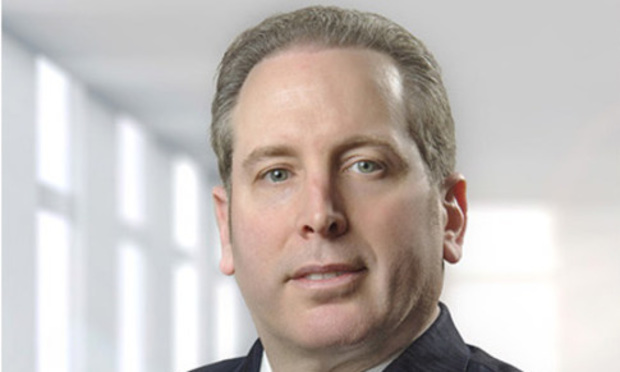Barry Black

August 29, 2019 | New York Law Journal
When Can Courts Decide Disputes Between Local Churches and Their Denominations?There is much confusion—including in some New York courts—about when a judge may resolve a disagreement between a local church and its governing body. In their Religion Law column, Barry Black and Jonathan Robert Nelson review the law and suggests steps that can help limit litigation in these situations.
By Barry Black and Jonathan Robert Nelson
10 minute read

May 30, 2019 | New York Law Journal
Hiring and Firing Clergy of Congregational Houses of WorshipNew York law prohibits trustees of religious congregations from hiring and firing clergy. The power to do so resides with the membership itself.
By Barry Black and Jonathan Robert Nelson
8 minute read

February 28, 2019 | New York Law Journal
How Courts Paved the Way for the EruvOver the years, courts in New York and the region have issued a number of decisions regarding challenges to a local government's willingness, or unwillingness, to allow the establishment of an eruv as an accommodation to Orthodox Jews. In this Religion Law column, Barry Black explores this issue.
By Barry Black
8 minute read

October 31, 2018 | New York Law Journal
Religious Institutions and Trustees: An Unorthodox RelationshipIn New York, the role of trustees of religious institutions is somewhat different from the role trustees play when governing for-profit corporations. Religion Law columnists Barry Black and Jonathan Robert Nelson explore.
By Barry Black and Jonathan Robert Nelson
9 minute read

August 29, 2018 | New York Law Journal
Religious Accommodations: How Far Must Employers Go?In Barry Black and Jonathan Robert Nelson's Religion Law column, the pair writes that there are limits to what employers must do to accommodate employees' bona fide religious beliefs.
By Barry Black and Jonathan Robert Nelson
10 minute read

May 29, 2018 | New York Law Journal
When #MeToo Leads to Litigation Against a ChurchNew York courts have not yet decided whether they may hear sexual harassment lawsuits against religious institutions. Learn more in this Religion Law column by Barry Black and John B. Madden.
By Barry Black and John B. Madden
8 minute read

February 28, 2018 | New York Law Journal
Congregations Transferring Real Estate: When Is Court Approval Needed?In their Religion Law column, Barry Black and Jonathan Robert Nelson discuss RCL §12 which provides that a religious corporation may not sell or mortgage any of its real property, or lease any of its real property for a term greater than five years, without applying for and obtaining approval of a court or the attorney general. They advise that failure to keep in mind the requirements of RCL §12 can upset a transaction, even after it has seemingly been completed.
By Barry Black and Jonathan Robert Nelson
9 minute read

November 17, 2017 | New York Law Journal
When Can State Courts Decide Religious Disputes?Barry Black and Jonathan Robert Nelson examine a significant 2007 religion law decision by the New York Court of Appeals and discuss how it has been applied over the past decade.
By Barry Black and Jonathan Robert Nelson
9 minute read

September 14, 2017 | New York Law Journal
Exceptions and Exclusions Benefit Religious Institutions and ClergyThirty years ago, in Corporation of Presiding Bishop of the Church of Jesus Christ of Latter-Day Saints v. Amos, 483 U.S. 327 (1987), the U.S. Supreme…
By Barry Black and John B. Madden explore "Corporation of Presiding Bishop of the Church of Jesus Christ of Latter-Day Saints v. Amos," where the court upheld the validity of a statutory exception to the prohibition against discrimination on the basis of religion contained in Title VII of the Civil Rights Act of 1964, and further discuss other examples of the law's special treatment of religious institutions and clergy members.
8 minute read
Trending Stories
- 1Mental Health Issues Don’t Get a Holiday
- 2'It's Got to Be a Wake-Up Call:' Atlanta Attorney Hopes $16M Verdict Spurs Training Changes at Hotels
- 3FTC Bans 'Junk Fees' in Live-Event Tickets and Short-Term Lodging
- 4California Legal Awards Moving to Mid-Summer Date in 2025, Adds New Categories
- 5Law Student Sues NY Attorney Grievance Officials, Seeking Materials Over Sexual Assault Claims
More from ALM
- Scan In Progress: Litigators Leverage AI to Screen Prospective Jurors 1 minute read
- Legal Speak at General Counsel Conference East 2024: Match Group's Katie Dugan & Herrick's Carol Goodman 1 minute read
- Legal Speak at General Counsel Conference East 2024: Eric Wall, Executive VP, Syllo 1 minute read



